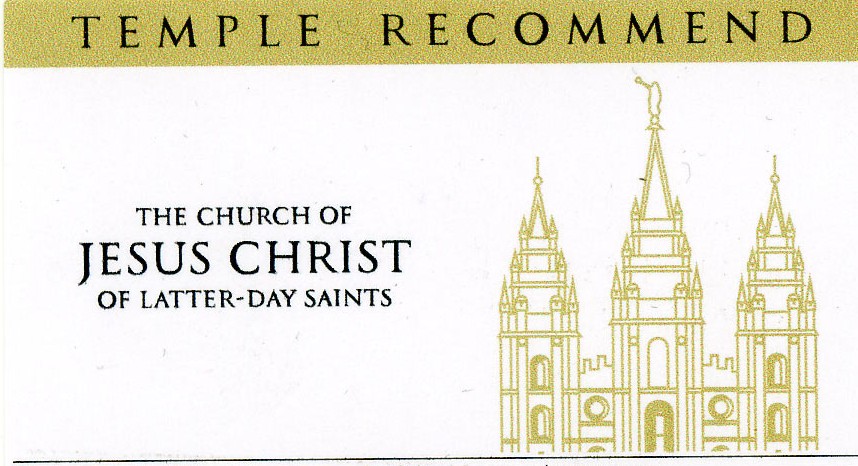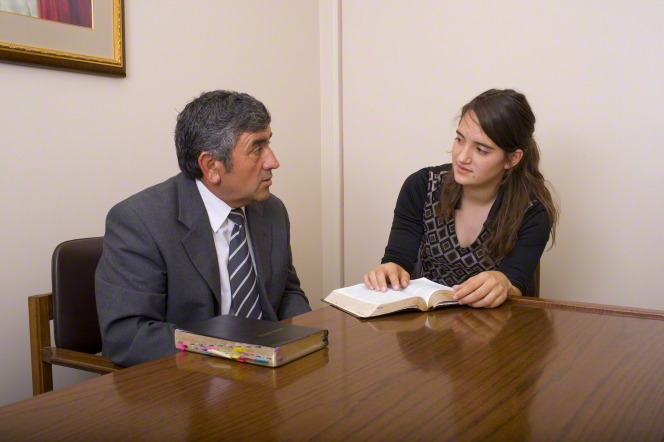Question
Gramps,
I have always had this doubt about tithes. If we could assign this principle to one of these two laws, what would it be?
Felipe
Answer
Dear Felipe,
You’re not alone in your struggle regarding tithing. However, the commandment itself is quite clear:
And after that, those who have thus been tithed shall pay one-tenth of all their interest annually; and this shall be a standing law unto them forever, for my holy priesthood, saith the Lord. D&C 119:4
In the Doctrine and Covenants Institute student manual, we find this quote:
In 1970 the First Presidency gave the following response in explaining “what is considered a proper tithe”: “The simplest statement we know of is the statement of the Lord himself, namely, that the members of the Church should pay ‘one-tenth of all their interest annually,’ which is understood to mean income. No one is justified in making any other statement than this” (First Presidency letter, Mar. 19, 1970).
As I pondered your question and discussed it with others, we came to the conclusion that tithing can properly be placed under the umbrellas of the law of obedience, the law of sacrifice, the law of consecration, and the law of the gospel – in other words, all the laws which we as members of the Church covenant to live. Let’s look at each.
The Law of Obedience
In Exodus 20:15, we are commanded not to steal. In Malachi 3:8-9, the Lord accuses the people of having robbed God by not paying tithes and offerings. In the above verse from the D&C, we see that tithing is a law we are expected to obey.
The Law of Sacrifice & The Law of Consecration
At least twice in the D&C, the Lord uses sacrifice to describe “the tithing of [his] people”:
Behold, now it is called today until the coming of the Son of Man, and verily it is a day of sacrifice, and a day for the tithing of my people; for he that is tithed shall not be burned at his coming. D&C 64:23
Yea, let it be built speedily, by the tithing of my people. D&C 97:11-12
12 Behold, this is the tithing and the sacrifice which I, the Lord, require at their hands, that there may be a house built unto me for the salvation of Zion—
When the Lord describes tithing as a sacrifice, we can be sure that is an accurate description. Further, in “Obedience, Consecration, and Sacrifice“, Elder McConkie linked these three laws:
Accordingly, I shall now set forth some of the principles of sacrifice and consecration to which the true saints must conform if they are ever to go where God and Christ are and have an inheritance with the faithful saints of ages past.
It is written: “He who is not able to abide the law of a celestial kingdom cannot abide a celestial glory.” (D&C 88:22.) The law of sacrifice is a celestial law; so also is the law of consecration. Thus to gain that celestial reward which we so devoutly desire, we must be able to live these two laws.
Sacrifice and consecration are inseparably intertwined. The law of consecration is that we consecrate our time, our talents, and our money and property to the cause of the Church: such are to be available to the extent they are needed to further the Lord’s interests on earth.
The law of sacrifice is that we are willing to sacrifice all that we have for the truth’s sake—our character and reputation; our honor and applause; our good name among men; our houses, lands, and families: all things, even our very lives if need be.
How, for instance, can we establish our ability to live the full law of consecration if we do not in fact pay an honest tithing? Or how can we prove our willingness to sacrifice all things, if need be, if we do not make the small sacrifices of time and toil, or of money and means, that we are now asked to make?
I recommend that you study this entire talk so as to recognize how all these laws are interconnected and lead us along the path toward exaltation.
The Law of the Gospel
In an article about the Sermon on the Mount, we find this explanation of the law of the gospel:
Once we understand that Jesus is speaking to believers and that he is teaching them how to live according to the law of the gospel that has replaced the law of Moses, then we can see the unity of the Sermon on the Mount.
Another Ensign article confirms this explanation, adding that tithing is part of the law of the gospel:
The atonement of Christ ended the necessity of those performances and ordinances of the Mosaic law that prefigured his sacrifice. Other parts of the law, including the Ten Commandments and precepts such as tithing, remained in effect because they were actually a part of the higher law of the gospel.
Finally, a New Era article explains that tithing is a legal duty under the law of the gospel:
As an acknowledgment and in return for his bounty, the Lord requires us to return to him as tithing 10 percent of our interest annually. In the law of the gospel, tithing is, then, as has already been said, a legal obligation. It is not a mere freewill offering.
Conclusion
Given these many references, it’s clear that tithes and offerings are given by the Lord to train us up in those virtues necessary for life in the Celestial Kingdom. The promises in Malachi to those who pay tithes and offerings can be likened to icing on the cake:
Bring ye all the tithes into the storehouse, that there may be meat in mine house, and prove me now herewith, saith the Lord of hosts, if I will not open you the windows of heaven, and pour you out a blessing, that there shall not be room enough to receive it.
11 And I will rebuke the devourer for your sakes, and he shall not destroy the fruits of your ground; neither shall your vine cast her fruit before the time in the field, saith the Lord of hosts.
12 And all nations shall call you blessed: for ye shall be a delightsome land, saith the Lord of hosts. Malachi 3:10-12
I testify that these spiritual and temporal blessings come as we choose to obey the Lord’s laws in consecrating ourselves and our resources for His purposes.
When we view tithing as a means of learning generosity and gratitude, as a way to practice willing sacrifice, as a sign of our willingness to consecrate our resources to the building up of the Kingdom of God on earth, and as a way of practicing and showing our obedience to the Lord in all things, it changes from a simple financial transaction into a refining and exalting practice, preparing us to live Celestial laws and enjoy eternal life.
I hope this helps you to overcome your doubts about tithing and enjoy all the blessings which stem from willingly and honestly obeying this law.
Gramps







